“Oho! Namma Ooru! Semma Joru!”
Kamala Vanchinathan, a resident of Ramapuram, takes this tune as cue to carry two bins filled with garbage to hand over to the conservancy worker.
“Vandi kulla kuppaya pirichi podanum,” blares the song as she hands over the wet and dry waste to the battery-operated garbage collection vehicle. She is quite proud of her efforts to segregate the waste generated in her house at source and encourages others to embrace the practice.
But the responsibility of solid waste management does not end with those such as Kamala who segregate waste at source. Although they are the crucial starting point, what happens along the rest of the waste management chain ultimately determines how successful the decentralisation efforts are.
To see what happens to the wet waste Kamala and many others in the city hand over, Citizen Matters visited 10 micro composting centres (MCCs) across the city.
While some of the MCCs visited were impeccably run and served their purpose, others were found to be subpar, with foul odour emanating from them and with poor maintenance.
What are the conditions of the micro composting centres?
There are 141 MCCs in the 15 zones that come under the Greater Chennai Corporation, which are maintained by private agencies, NGOs as well as the Corporation itself. The wet waste collected from the houses, commercial and industrial areas across the zones go to the MCCs and the biogas plant in Madhavaram for further processing. In the MCCs, the wet waste is converted into compost that is sold in the division offices.
The general process of micro composting involves shredding vegetable waste, which is later poured into tanks for decomposition. After a month, a microorganism solution is added, which is usually a mixture of curd, jaggery and water that speeds up the composting process, as well as keeps the stench in check. Later, the compost is taken and dried, after which it is sieved and packed.
But is this and other processes being followed as they are supposed to be?
South Cooum Road MCC maintained by Nellai Motors
At first sight, this MCC appears to be functioning and producing compost. The above picture shows the compost being dried in the premises. Before the compost is ready, it is dried for some time to allow for the moisture to escape.
“The compost must be spread in a thin layer,” says S Rukmani, the founder of At last, We Cannot Eat Money (AWCEM) Foundation, a non-profit working on waste management awareness in the city.
She adds that the layer in the above photo is not very thin. The thinner it is, the faster it dries and the process is sped up. On not being spread out properly, the compost will remain wet and may attract insects as well as give out an unpleasant smell, she explains.
“This is one of the reasons residents object to bringing an MCC near their place,” she says.
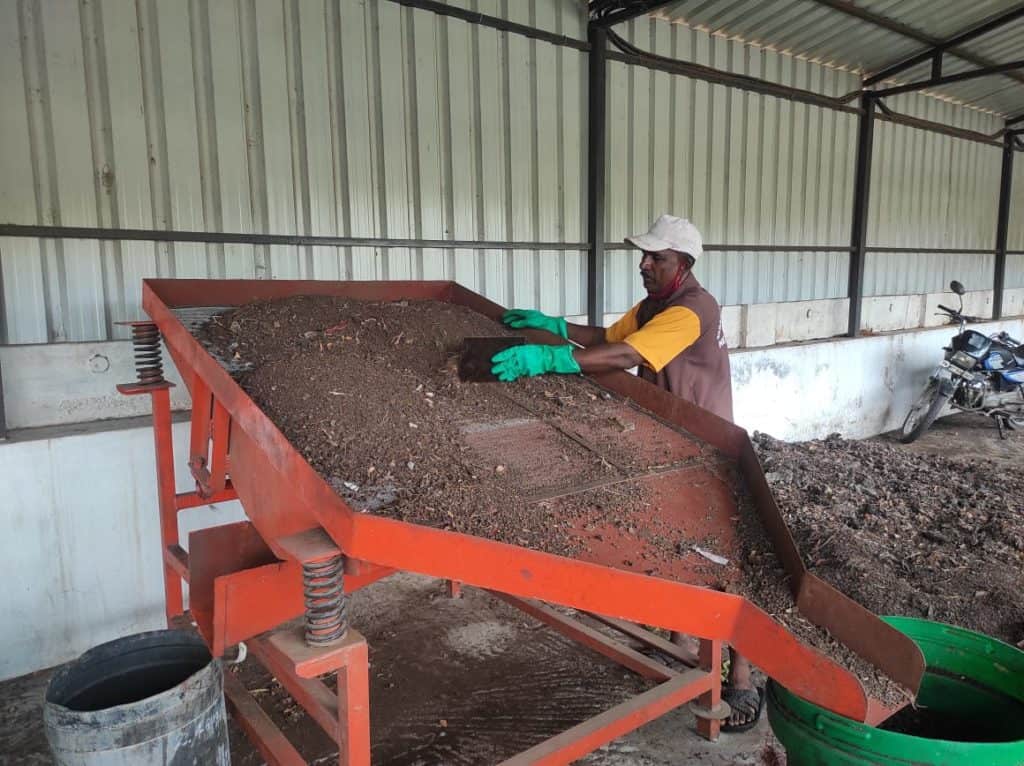
Basin Bridge Road, Lorry Depot MCC maintained by Nellai Motors
This MCC had compost that was produced spread out more evenly to dry.
“This is a huge space, and they are spreading it in an equal layer. It is not heaped anywhere. This is right,” says Rukmani.
However, she objects to the addition of the orange peels among the wet waste, as seen in the photo below.
“Citric fruit (like oranges and lemons) waste must be removed. Only then will the manure be of good quality,” she says, advising that the citric wet waste must be segregated at source by people, or must be picked out by the workers at the MCCs. This is because the citric peels slow down the micro composting process.
Industrial Estate, 4th Main Road near Perungudi MCC maintained by Hand in Hand Inclusive Development and Services
In this MCC, plastic pieces are found lying in the compost tank due to poor segregation.
When residents give unsegregated waste to the garbage collection vehicles, the conservancy workers are asked to segregate the waste, which puts them in great discomfort. If the waste is not segregated at any level, the MCCs end up processing wet waste which is contaminated with dry waste like plastic.
Rukmani insists that MCCs must be neatly maintained so that there is no situation where residents complain about ill odour and it being a breeding ground for insects and maggots. The absence of such maintenance leads to foul odour, which was found at this MCC.
Veerapandiyakattapomman Street, Perungudi MCC maintained by Greater Chennai Corporation
This facility is being directly maintained by the Greater Chennai Corporation. The compost produced has been heaped to dry. Rukmani opines that good compost must be reddish brown in colour, which is an indicator of quality.
Nano composting centre in Ward 180 office of Thiruvanmiyur maintained by Greater Chennai Corporation
At this MCC, the waste is not ground properly with chunks being present in the wet waste. Only one of the two tanks is filled with compost.
Solid chunks of waste hampers the composting process, says Rukmani.
Some residents of Thiruvanmiyur complain that the facility has not been functioning properly.
Jayanthi Premchandar, a resident of Valmiki Nagar raised the issue of its erratic functioning to the Chief Engineer of the Solid Waste Management Department of Greater Chennai Corporation (GCC) a couple of months ago. “In May we sent him the details. I went the day before yesterday to see the centre, it is in the same state,” shares Jayanthi. When Citizen Matters reached out to him regarding the status of the composting centre, there was no response.
On visiting the centre, it was umanned though it is being run by the workers of the civic body.
The centre has been created as a smaller version of a typical MCC so that people can individually drop off the wet waste in the centre for composting.
Sringeri Mutt Road MCC maintained by Jay Kay Trans Chennai
The MCC has been in a rundown state since April, with plastic waste mixed with the wet waste and sections of the MCC being used for storage of assorted waste.
West Saidapet MCC maintained by Namma Ooru Foundation along with Shasun Jain College
This was amongst the cleanest MCCs visited by Citizen Matters. The administrative staff has been maintaining the facility himself due to a shortage of workers.
The compost was not spread in a thin layer for drying, owing to lack of space. However, the staff managing the facility says that they till it every 2-3 days. “Tilling is a viable option for drying the compost if there is no space”, says Rukmani.
Read more: Where does the waste generated in your home go?
Madhananandapuram MCC maintained by Greater Chennai Corporation
Residents around the MCC disclose that the facility was closed after less than a year as people around the area complained about the stench emanating from the premises.
Othavadai Street, Mugalivakkam MCC maintained by Srinivas Waste Management Services Private Limited
This is the only MCC which is functioning at full capacity. However, the facility still faces issues with odour and maintenance.
Read more: Here is how a Chennai apartment is segregating waste, even during COVID-19
Apartment-led Micro Composting Centre
In situ composting centres are also being set up by residential and industrial areas, apart from the ones under GCC. A model effort can be found at an apartment complex in Madhanandapuram.
An apartment-led initiative of micro composting is being carried out at the XS Real La Celeste apartments Madhanandapuram. Here the wet waste comes from the apartment and the manure is used for the garden in the same complex.
The workers clean the facility every evening, and there is no ill odour. The facility follows a different process where wood powder is mixed with the compost, and instead of the enzyme solution used by the MCCs across the city, two chemical powders are used.
Even though the MCCs under different contractors and the civic body follow a general method for composting, the number of days for decomposition and drying allotted by them varies. Different MCCs produce different quality of manure due to the variation level of segregation and maintenance of the facility.
Rukmani says that notes can be taken from the MCCs that do a proper job and a standard operating procedure can be suggested for the civic body to standardise the process as well as maintain the quality of the manure across all the centres.
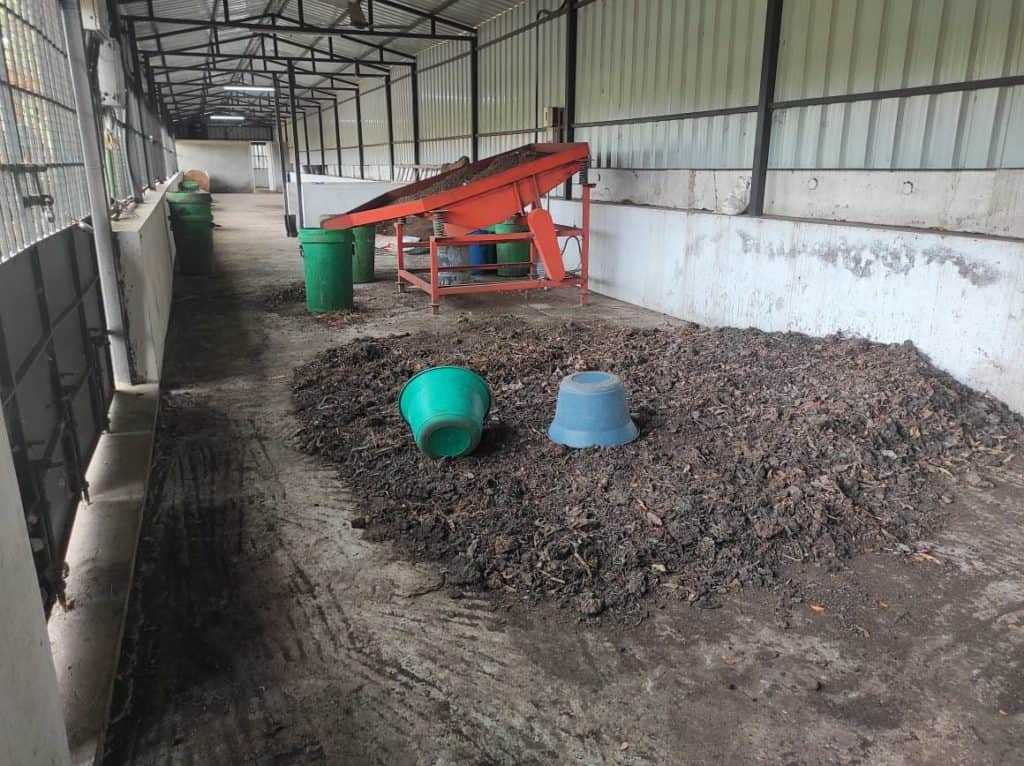
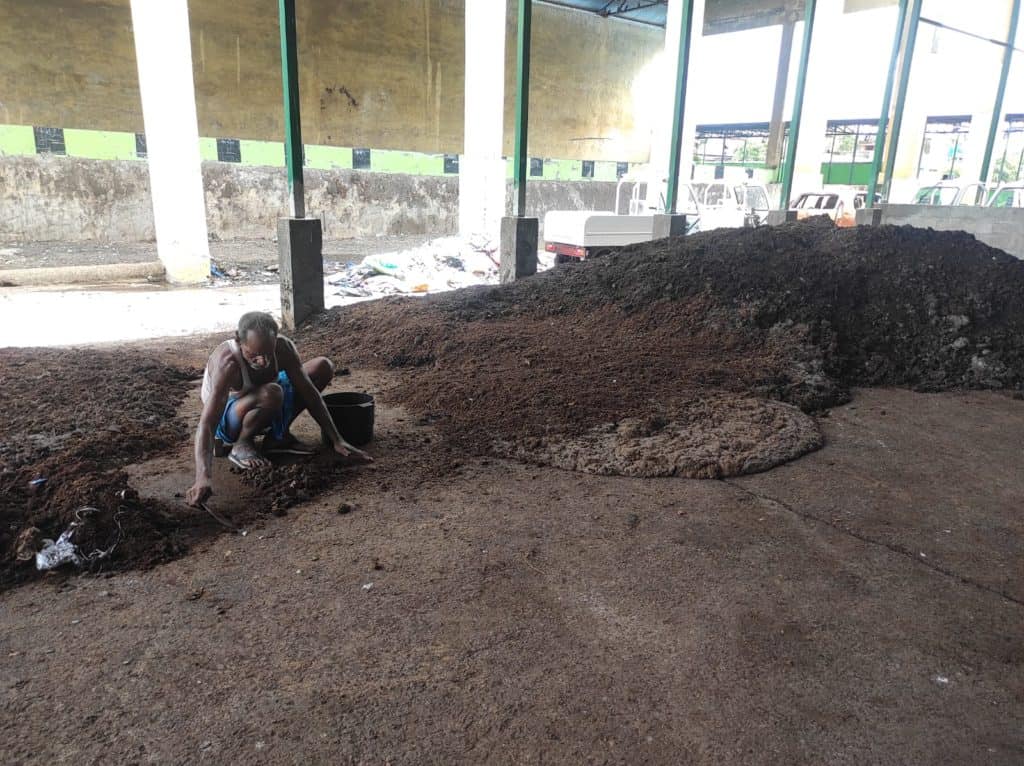
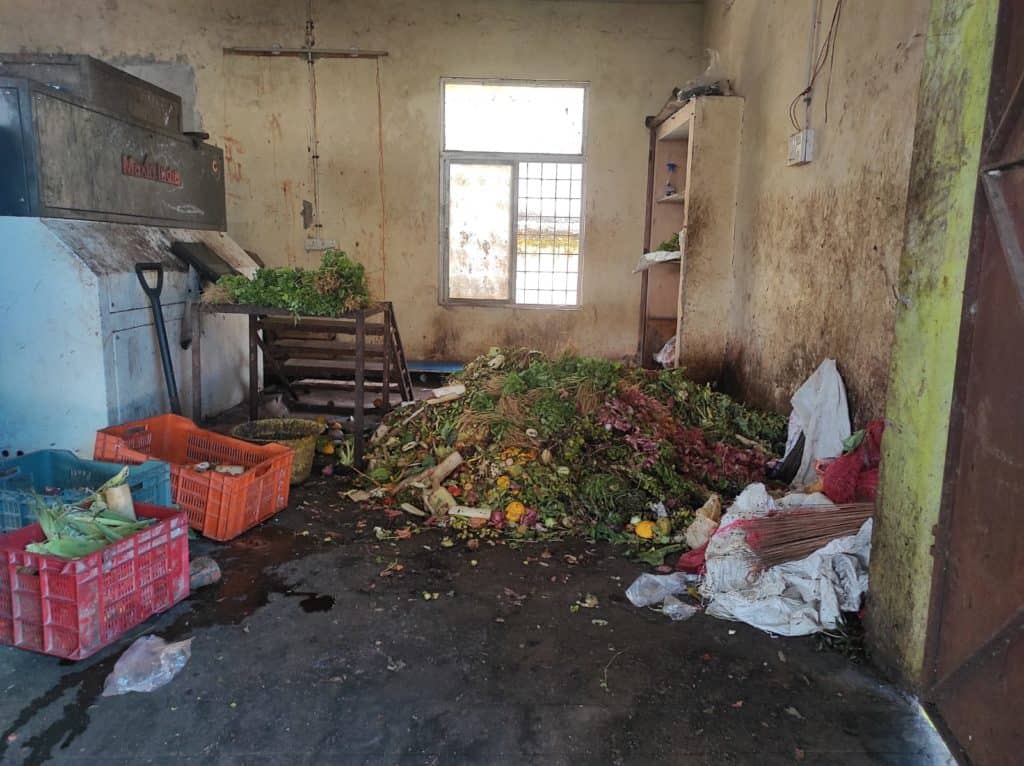
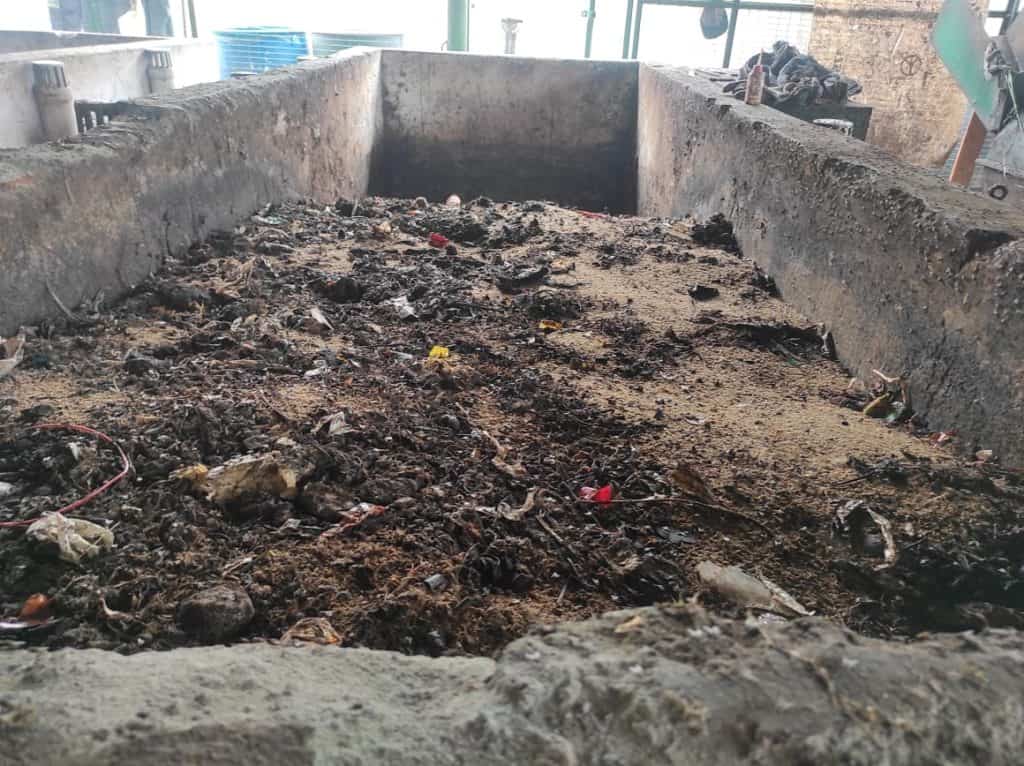
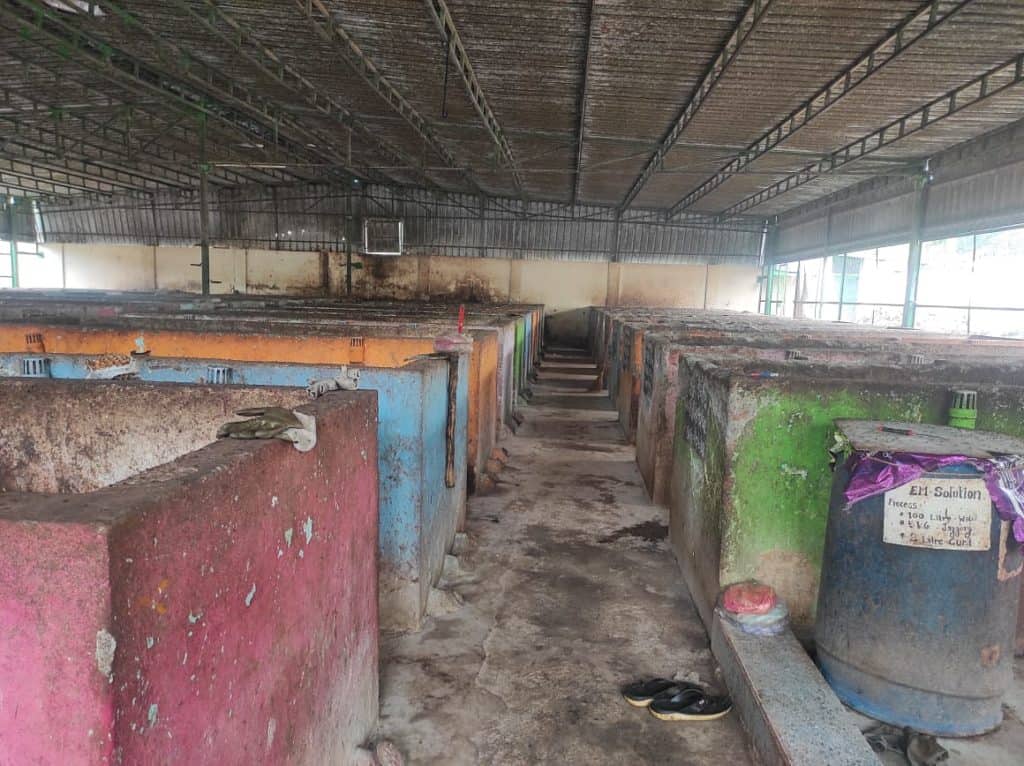
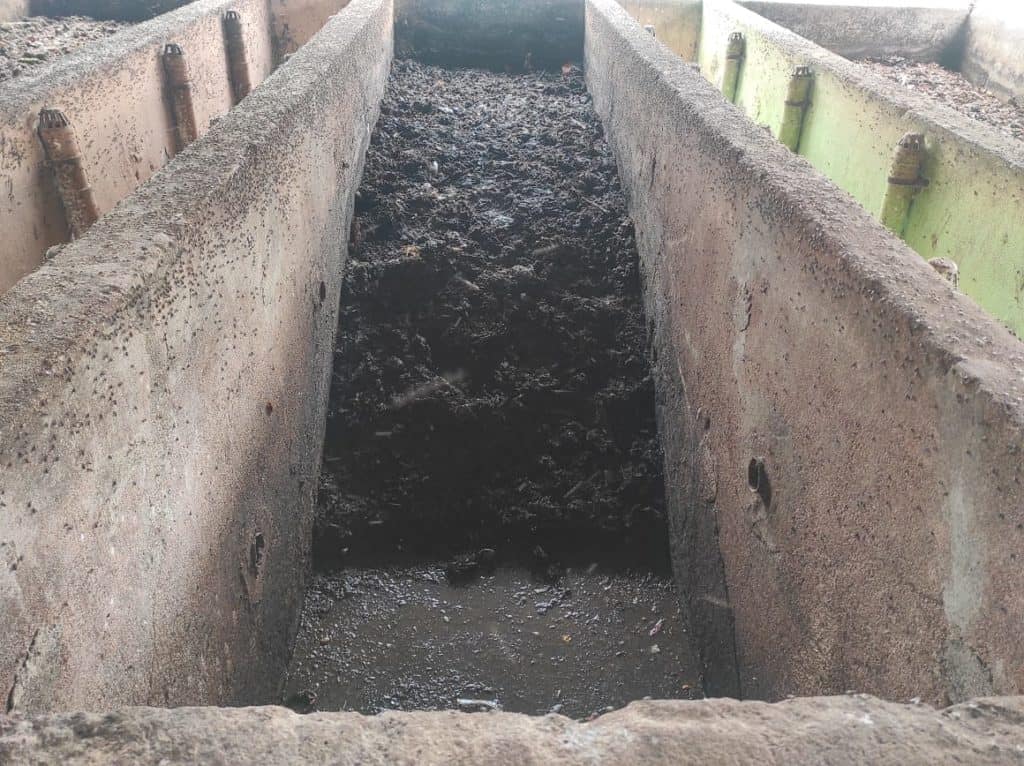
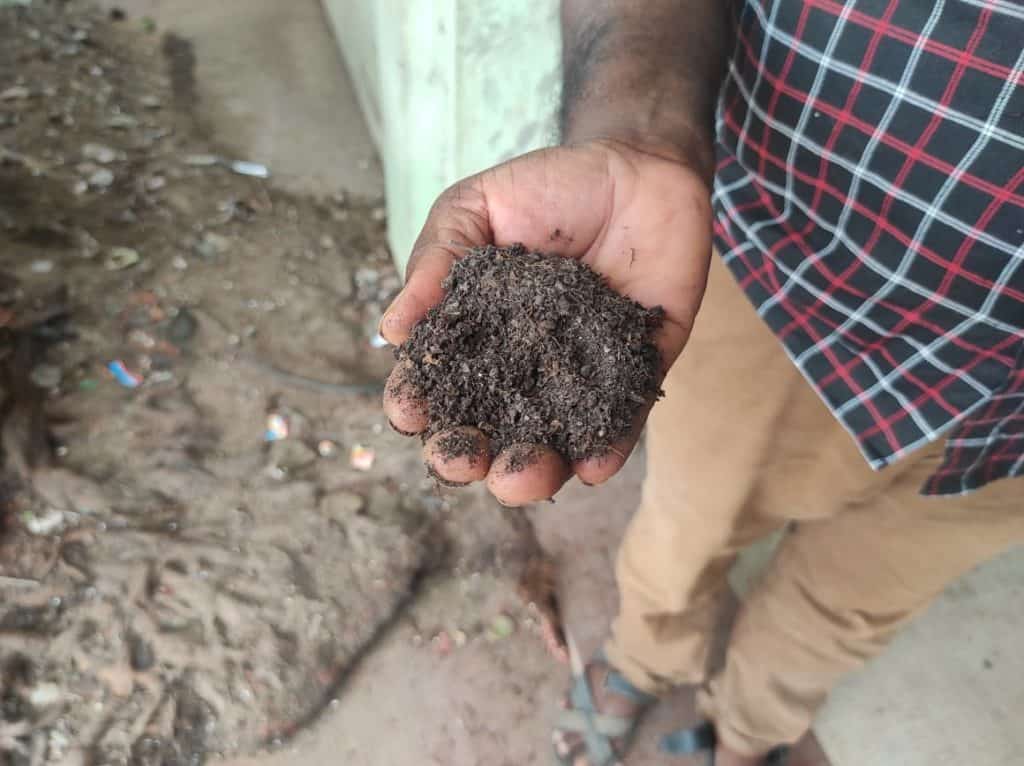
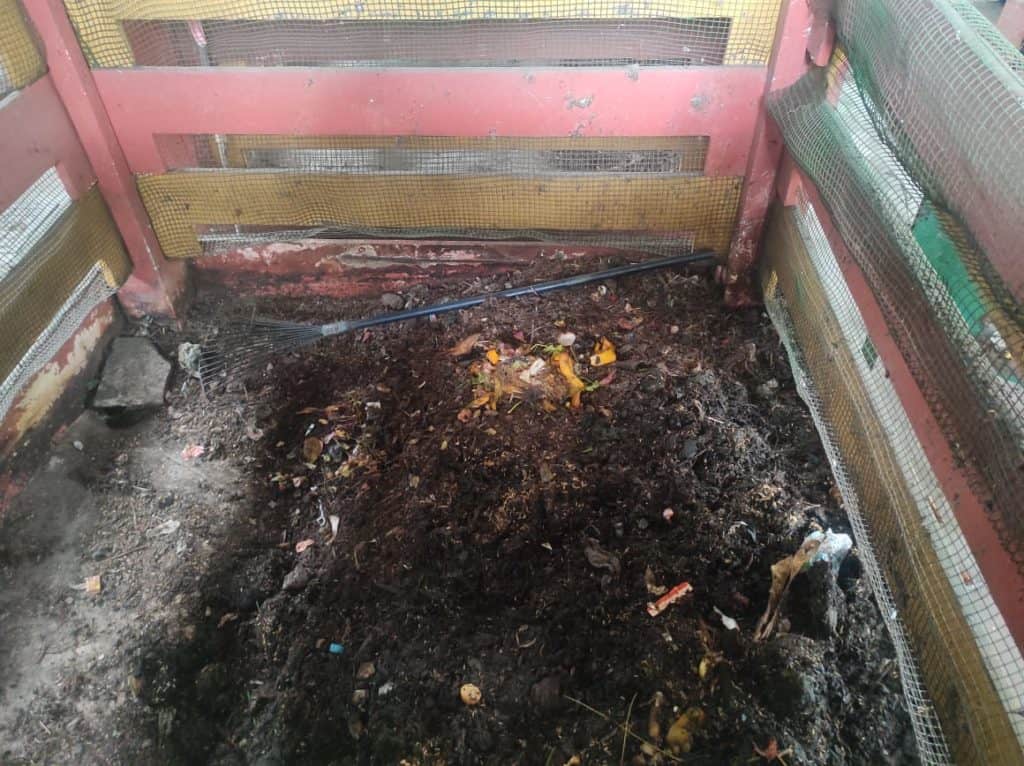
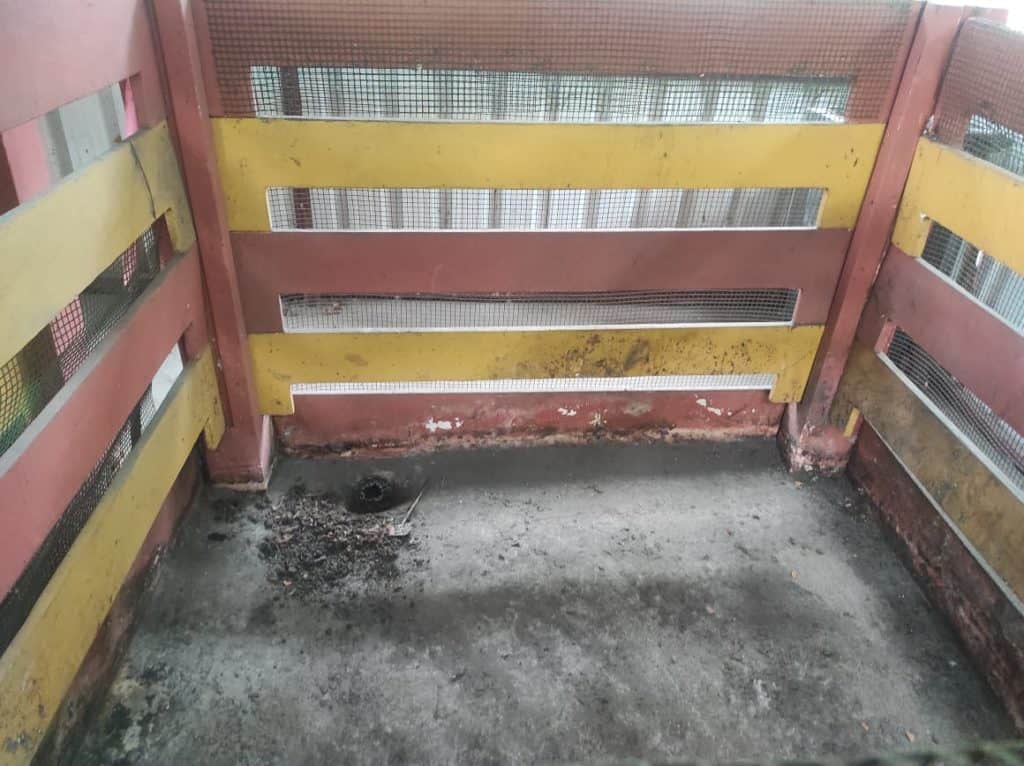
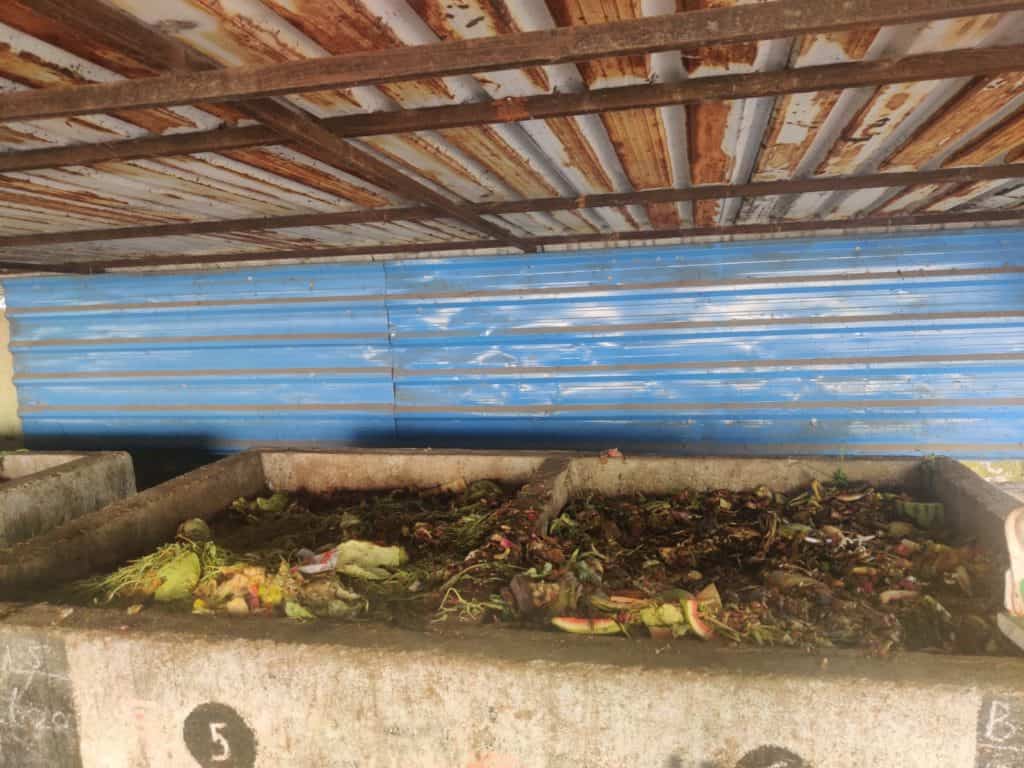
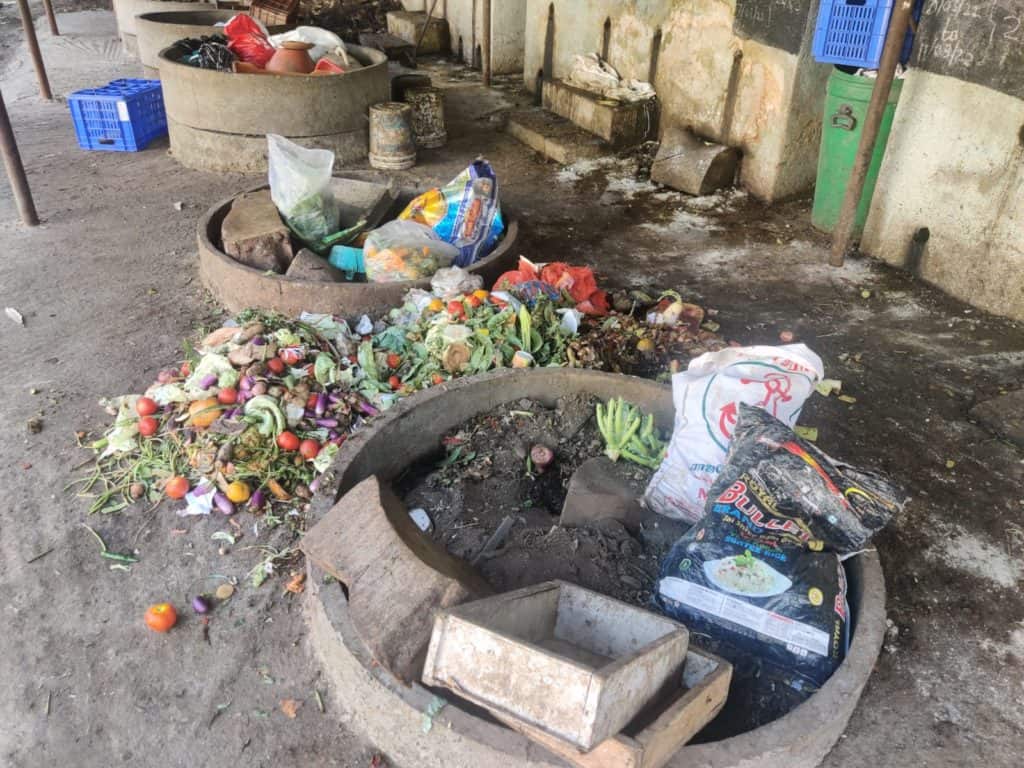
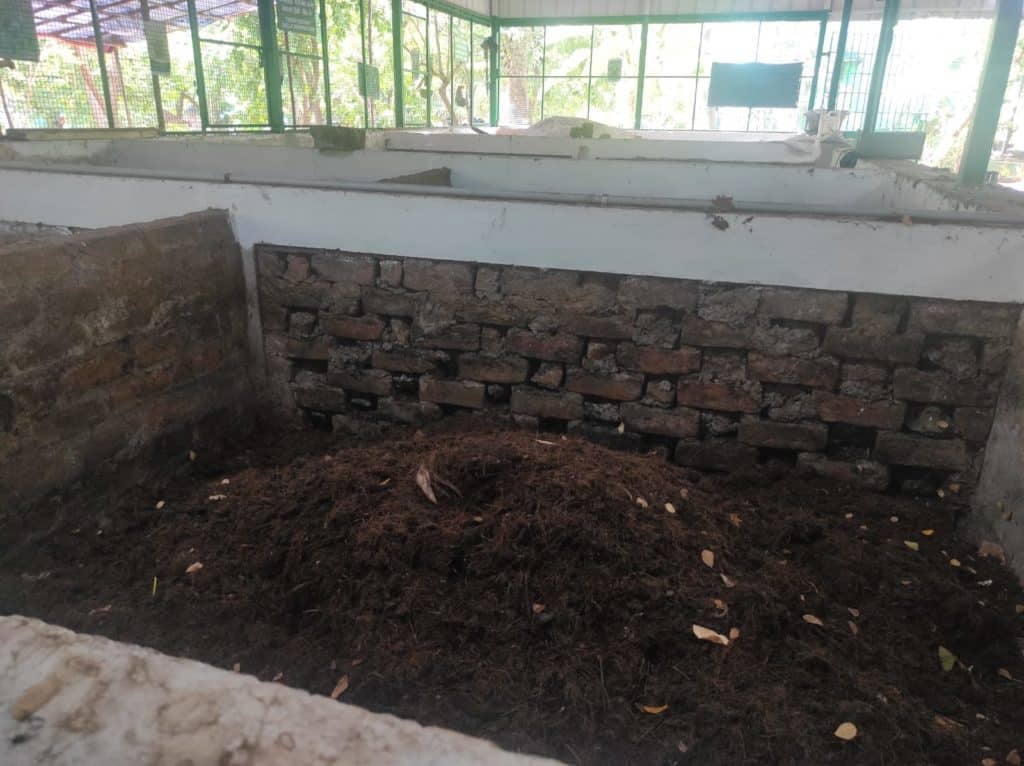
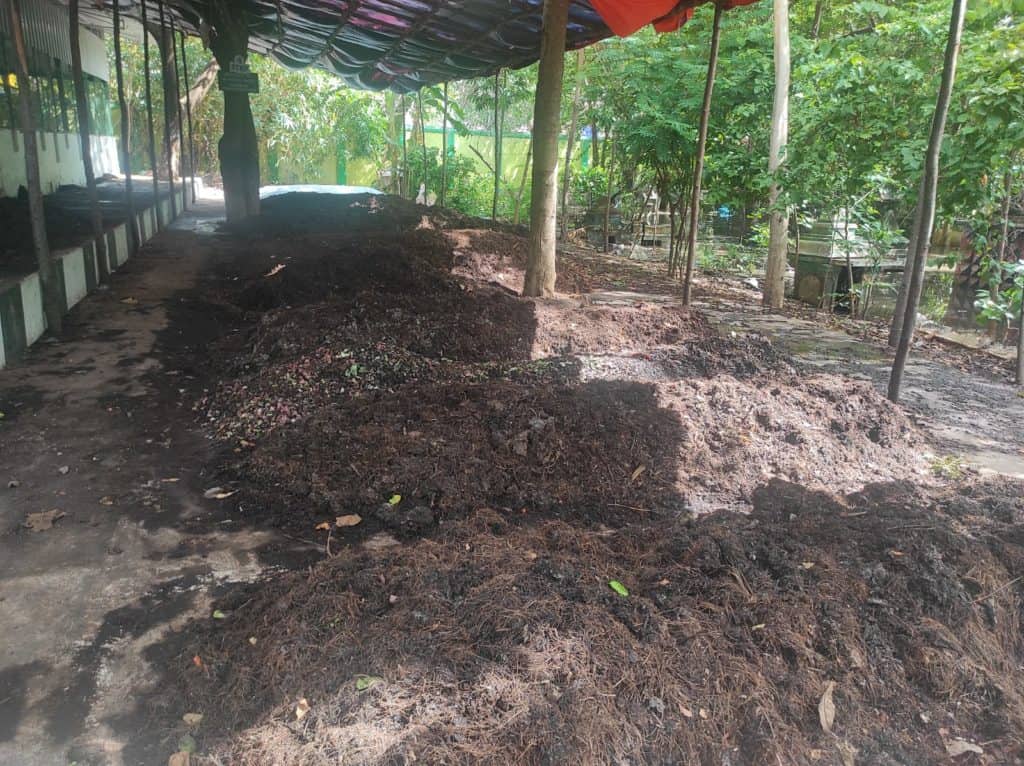
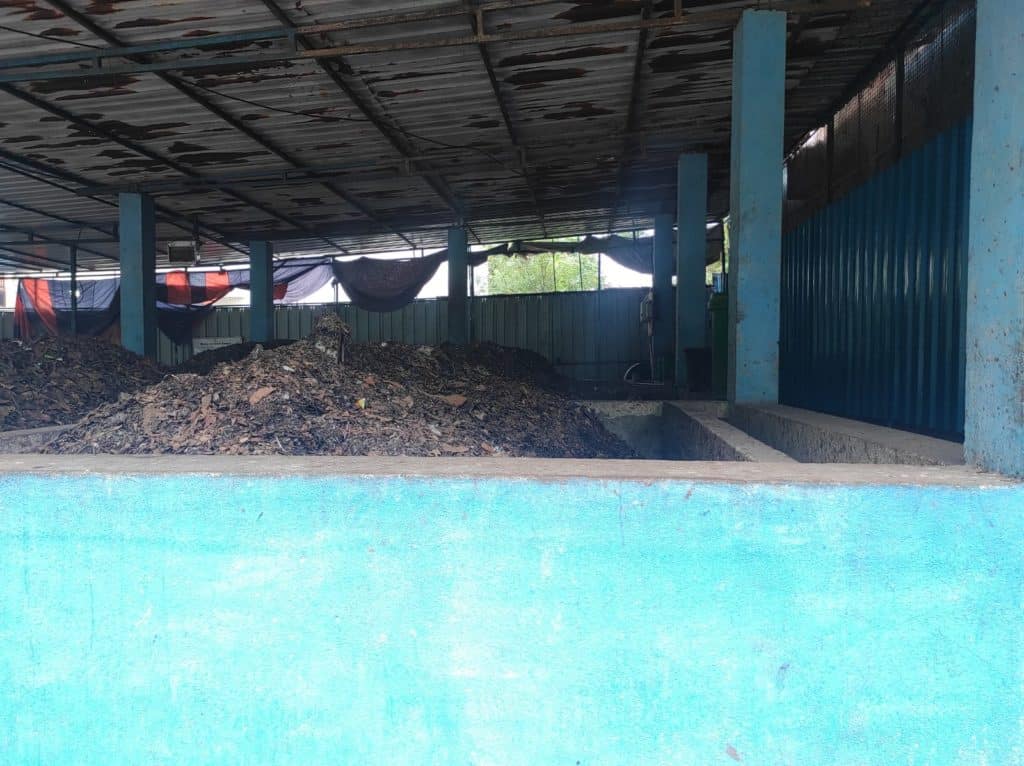
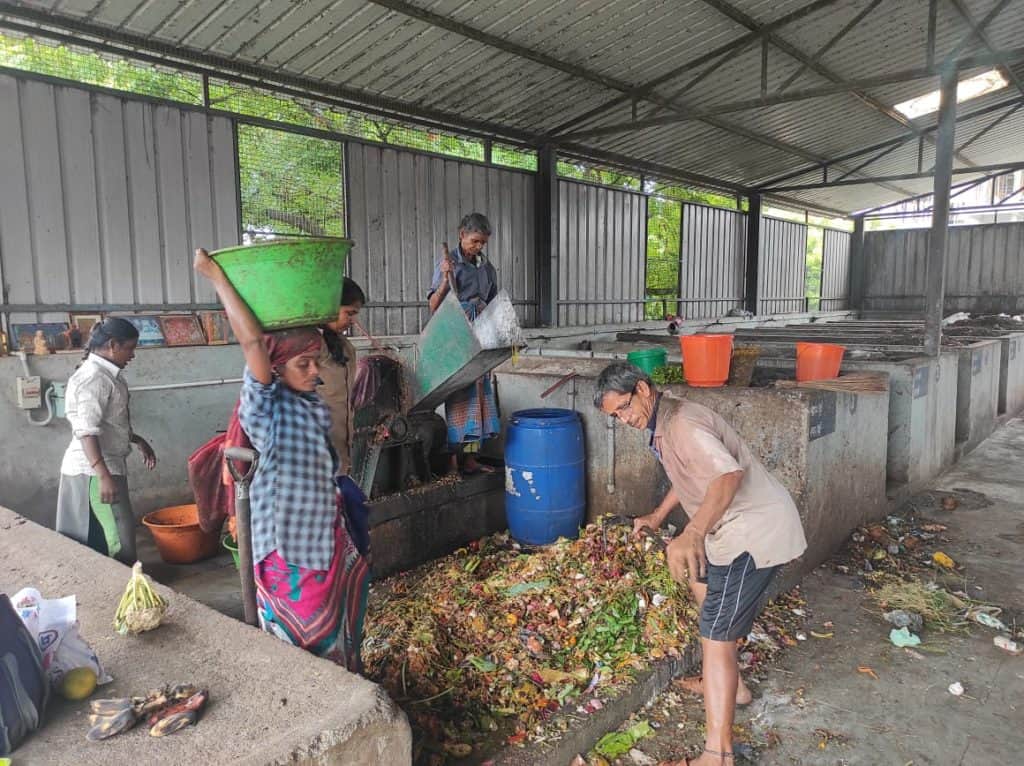
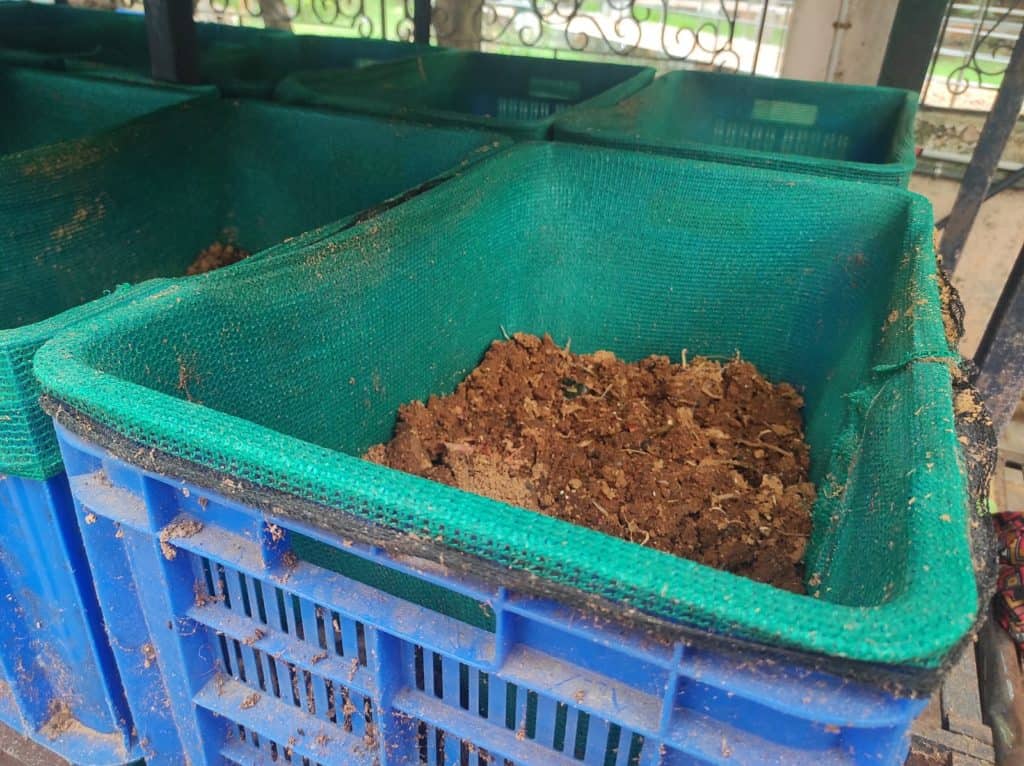
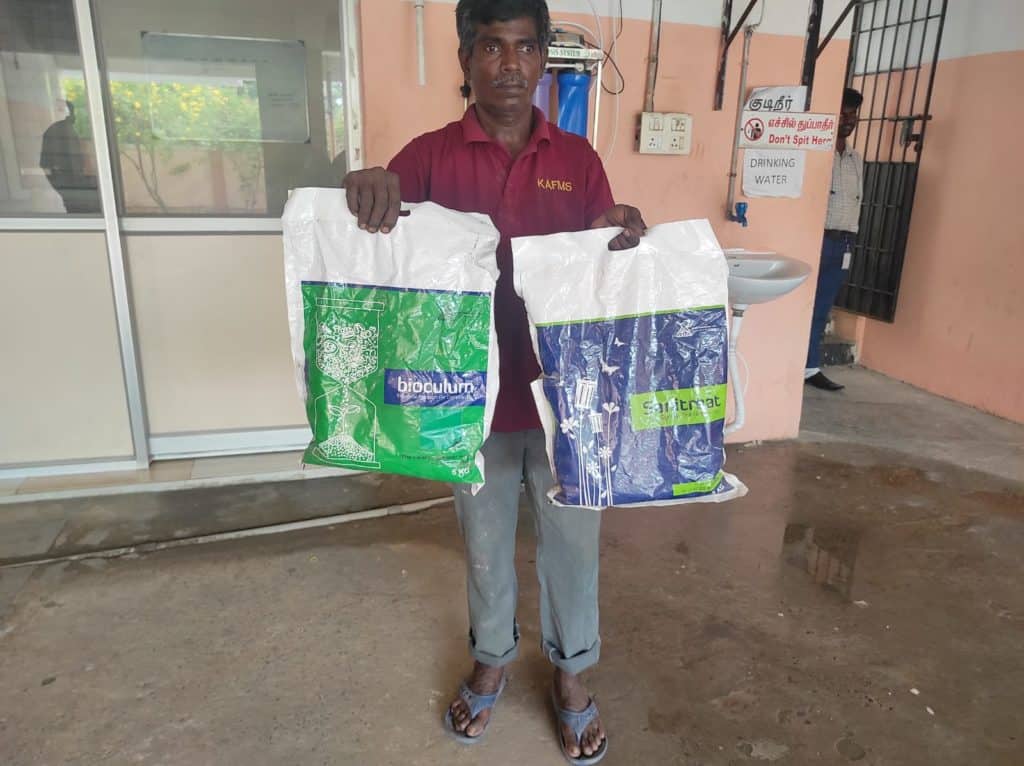
We are staying nearby apartment in Madanandhapuram inside La Celeste Compound. The smell is too bad especially when they mix the waste. Insects enter the apartment through windows. All our fight for removing the facility is still not completed fully. It is just locked and not removed. Children are struggling and elders are having breathing problem. Smell comes inside the flat even if we keep the windows closed. Some of the flats are kept closed as no tenants are coming to occupy. It is common sense that we should not allow such facility in the middle of residential apartments. Hope to see some positive response from the government.